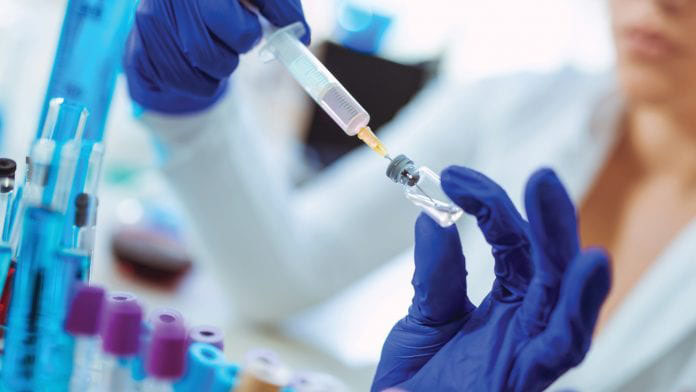

The announcements prompted German Chancellor Angela Merkel on Monday to call an emergency meeting with regional leaders and vaccine makers. Italy is mulling a lawsuit against pharmaceutical companies that have failed to honor vaccine supply schedules.
Spain and France said on Friday that they would have to delay new first-dose injections for as long as two weeks to ensure that those who received their first dose can get the second, and Portugal said last week that the completion of its first-dose vaccinations could be delayed by up to two months.
Charles Michel, president of the European Council, said in a statement last week that he supported the use of “all legal means and enforcement measures at our disposal under the (EU) Treaties .. to ensure effective vaccine production and supply for our population.”
The vaccines approved so far by the EU are from U.S.-Germany joint venture Pfizer and BioNTech, British-Swedish multinational AstraZeneca, and Moderna from the United States.
Pfizer and BioNTech said on Monday they would deliver more than two billion doses globally this year rather than 1.3 billion as previously announced, including an extra 75 million doses for the European countries between April and June. AstraZeneca said it would supply an extra nine million doses of its vaccine by March, though this will still leave the company well below its original target. Neither increase is expected to have a big impact in the short term.
Health sector analysts said the delays create serious problems on multiple fronts.
“The most immediate impact comes from the thousands of European Union residents dying each day and the tens of thousands infected each day due to the coronavirus,” Silvio Garattini, a research scientist and former director of the Mario Negri Institute for Pharmacological Research, told Xinhua. “But even more problematic is that the longer the virus is in circulation the more variants will evolve.”
Some variants that have evolved so far have earned headlines, including those detected in Brazil, the United Kingdom and South Africa. But Garattini said that more than 30,000 different variants have been recorded so far, with more emerging every day.
A few of these variants are “weaker than the ones we have already seen,” Garattini said, but others “will be more deadly or more transmissible. Therefore we have to act urgently to vaccinate as many people as possible as quickly as possible, not only in Europe but globally.”
More than 3.5 million vaccine doses had been sent to Germany, of which 2.2 million were already used as of last Friday, according to German Minister of Health Jens Spahn. So far, 2.2 percent of the German population has received their first vaccination.
Italy, with nearly 1.6 million and Spain with nearly 1.4 million, were next, followed by France with 1.1 million. No other EU member state had topped one million, though Poland is expected to pass that figure this week.
On a per-capita basis, states with smaller populations led the way, with Malta, Denmark and Ireland the only member states to have distributed at least one vaccine dose to at least three percent of their populations.
The trend is similar for those who have already received two full doses of the vaccine. Belgium, with more than two percent of its population fully vaccinated (a stage that requires two doses within a fixed period), is the leader in that category by a larger margin. The Czech Republic and Denmark are the only other countries to have fully vaccinated at least 0.5 percent of their population, though Italy is also nearing this milestone.
In an e-mailed response to questions from Xinhua, a senior European Commission official said the slowdown showed the need to have access to vaccines beyond the three already in the pipeline.
“Europe needs a broad portfolio of vaccine candidates based on different technological approaches in order to maximize the chances of quickly developing, manufacturing and deploying a vaccine for all Europeans,” said the official, who preferred to remain anonymous.
In the same vein, the President of Italy’s Higher Health Council Franco Locatelli and virologist Matteo Bassetti last week called for Italy to start using Sputnik V, a vaccine developed in Russia, and urged the evaluation of vaccines manufactured in China.
For now, Hungary is the only EU member state that has authorized the use of China’s Sinopharm COVID-19 vaccine and the Russian vaccine.
“There are more than 60 vaccines in clinical trials and we should be studying all of them,” Garattini said.
A total of 236 candidate vaccines are still being developed worldwide — 63 of them in clinical trials — in countries including Germany, China, Russia, Britain and the United States, according to information released by the World Health Organization on January 26.
Source : XINHUA